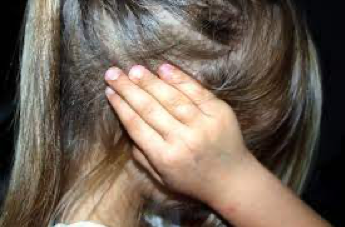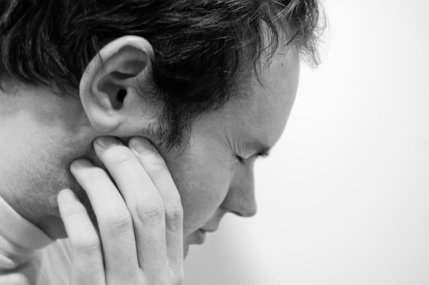What are the most common tinnitus sounds? Many people around the world suffer from tinnitus, with 50 million adults in the US alone. Although people of different ages experience tinnitus at least once in their lifetime, it is most common in older adults. In fact, studies suggest that more than half of the affected people are adults over the age of 50. Not to mention, most of these people have suffered from this hearing condition for more than 5 years.
Let’s learn more about tinnitus and the most common sounds that tinnitus patients report hearing.
What is Tinnitus?
Tinnitus is a common hearing condition in which the affected person hears sounds without an external source. This means that the sounds an affected person hears do not actually exist in the external world. You might be suffering from tinnitus if you think you hear sounds that others around you don’t.
Different people experience sounds of different quality, types, frequencies, and degrees of loudness. While most people report ringing in the ears, others also complain about whistling, chirping, hissing sounds, etc. That is not all; the sounds can be all steady or pulsating and intermittent or constant.
Not to forget, people’s experiences of tinnitus also differ from one another in terms of where they feel the sound the most. Some people hear the tinnitus sounds inside their head, while another affected person might hear distant tinnitus sounds. Furthermore, tinnitus can be both bilateral (ringing in both ears) and unilateral (ringing in one ear only).
Typically, tinnitus is most common among people with hearing loss. However, the main cause of tinnitus is uncertain. Besides, tinnitus can also be a result of various health issues and other conditions such as:
- Cancer or tumor
- Certain medications
- Jaw joint dysfunction
- Wax buildup
- Cardiovascular disease
- Chronic neck muscle strain
- Head and neck injuries
- Head and neck tumors and cancers
- Benign cysts
- Meniere’s disease
You might also experience tinnitus after being exposed to loud music. For example, attending a concert can trigger tinnitus for you. This should go away in a few days. However, treatment is necessary for tinnitus that prevails for long periods of time.
Types of Sounds
The experience of hearing tinnitus sounds varies from person to person. While some people experience one sound throughout their tinnitus, these sounds variably change and intertwine for others. People hear various sounds such as ringing, whooshing, sirens, static, roaring, pulsing, screeching, hissing, clicking, ocean waves, hissing, dial tones, etc. In rare cases, affected people also report hearing music and humming.
Each person experiences tinnitus differently with such a wide range of sound variety in tinnitus. At Tinnitus Cognitive Center, we understand that such differences require support, and we provide exactly that with our excellent treatment services.
Cases of tinnitus range from mild to severe, with people experiencing different intensities of sounds. Although the number of tinnitus sounds is uncertain, it largely depends on the type of tinnitus a person has.
The Four Different Types of Tinnitus based on Sounds
The four different types of sounds based on the variety of sounds are:
- Subjective Tinnitus: The most common type of tinnitus, subjective tinnitus is usually a result of exposure to excessively loud noise. Generally, it may last for up to a year or even never stops in severe cases.
- Neurological Tinnitus: Neurological Tinnitus is usually a symptom of other health disorders like Meniere’s disease. The latter affects the primary auditory functions of the brain.
- Somatic Tinnitus: Somatic Tinnitus is associated with the body’s sensory system.
- Objective Tinnitus: Objective Tinnitus is a rare type of tinnitus that is usually a result of vascular deformities or involuntary muscle contraction.
Common Tinnitus Sounds: Conclusion
Tinnitus sounds vary from person to person. However, they may depend on the four types of tinnitus: subjective tinnitus, neurological tinnitus, somatic tinnitus, and objective tinnitus.
If you think you might be experiencing tinnitus, you can visit us at the Tinnitus Cognitive Center™ in New York. Stephen Geller Katz, LCSW-R has over 20 years of experience and provides effective tinnitus retraining therapy. Give Stephen Katz a call today to book an online session and begin relieving yourself of this condition.
Stephen Geller Katz, LCSW-R
646-213-2321



[…] studies reveal that more than half of the adults affected by tinnitus have been experiencing tinnitus sounds for over 5 […]
[…] put, tinnitus is a hearing condition that affects a person’s ability to hear a sound that has no external source. Normally, we are able to hear and recognize sounds when a certain […]
[…] Sound therapy is a broad term that involves using different sound therapies. Depending on the devices and techniques, sound therapies can help minimize the intensity of tinnitus sounds (see also: https://www.tinnitustreatmentnyc.com/common-tinnitus-sounds/). […]
[…] intervals, while others may hear a buzzing, roaring, or hissing in their heads. Sometimes the sounds are intermittent, and other times, they can be constant. Issues like these can be a minor or […]
[…] that experts call tinnitus. People suffering from tinnitus often hear hissing, buzzing, or ringing sounds. The severity of this condition often varies from one individual to the other. However, it can be […]
[…] the sounds an individual hears do not necessarily have to be high pitched ringing. It can also resemble birds […]
[…] is a condition characterized by a persistent ringing, buzzing, hissing, or other similar sounds in the ears or head. The symptoms of tinnitus can vary from person to person and can be […]
[…] retraining therapy is a form of therapy that aims to retrain the brain to ignore the sounds of tinnitus. It involves working with a therapist to identify negative thought patterns and behaviors related […]